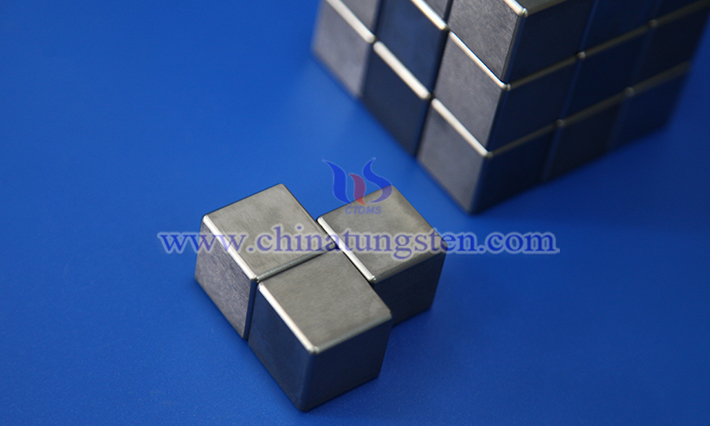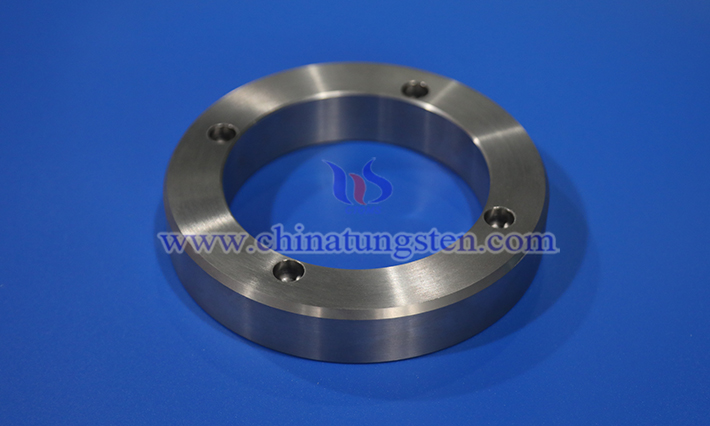Why Does China Implement Export Controls on Tungsten Alloy?
- Details
- Category: Tungsten's News
- Published on Friday, 14 February 2025 17:02
On February 4, 2025, the Ministry of Commerce announced its decision to implement export controls on tungsten-related items, including tungsten alloy, tungsten-copper alloy, tungsten-silver alloy, tungsten-nickel-iron alloy, tungsten-nickel-copper alloy, etc., with specific characteristics or dimensions.
Additionally, according to the "Export Control List of Dual-Use Items of the People's Republic of China," products such as tungsten-rhenium alloy (with a combined content of rhenium and tungsten of 90% or more) are also included in the export control list.
So, why does China implement export controls on tungsten alloy?

I. Introduction to Tungsten Alloy
Tungsten alloy is an alloy material with tungsten as the matrix, with small additions of elements such as nickel (Ni), iron (Fe), copper (Cu), cobalt (Co), molybdenum (Mo), chromium (Cr), etc. This alloy exhibits high density (16.5~19.0g/cm³), high strength, high hardness, good oxidation resistance, and corrosion resistance. These properties make tungsten alloy widely used in fields such as national defense and military, aerospace, nuclear industry, electronic devices, automobile manufacturing, medical equipment, etc. For example, it is used to manufacture high-performance engine components, armor-piercing bullet cores, nuclear reactor shielding materials, and various precision mechanical parts, balancing weights, etc. Tungsten alloy is an indispensable strategic resource for modern industry.

II. Strategic Significance of Export Controls on Tungsten Alloy
Safeguarding National Security and Interests: Tungsten alloy is a core material for national defense, military, and high-end manufacturing. As the world's largest tungsten producer (accounting for 82% of global production), China's implementation of export controls on tungsten alloy can prevent these key materials from being utilized by potential adversaries for high-precision weapons or satellite technology, thereby safeguarding national defense security. Additionally, it can prevent the leakage of critical industrial and military technologies and maintain the sustainable utilization of strategic resources.
Fulfilling International Obligations: As a member of the international community, China actively fulfills international obligations such as nonproliferation. Implementing export controls on key strategic resources such as tungsten alloy helps further regulate the global circulation of related items and promotes the improvement of the international nonproliferation system.
Responding to Changes in the International Situation: In recent years, the international environment has become increasingly complex, with significant rises in instability and uncertainty. Key strategic mineral resources have become the focus of competition among major powers. Through export controls, ensuring the safe and rational utilization of domestic resources helps maintain national economic security and sustainable development.
Enhancing Global Industry Chain Voice: China occupies an absolute dominant position in the global tungsten supply chain but lacks pricing power. By implementing export controls, resources can be more effectively managed, reducing excessive outflow and retaining sufficient resource reserves for the sustainable development of domestic industries, ensuring long-term and stable supply of key resources. Meanwhile, export controls can incentivize domestic enterprises to increase investment in technology research and development, promoting the development of domestic industries towards deep processing and high value-added fields, reducing external dependence, enhancing national strategic autonomy, and thus amplifying China's influence within the global industry chain.
- Chinatungsten Online: www.chinatungsten.com
- CTIA GROUP LTD: en.ctia.group
- Tungsten News & Price: www.ctia.com.cn
- Molybdenum News & Price: news.molybdenum.com.cn
- Tel.: 86 592 5129696; Email: sales@chinatungsten.com



 sales@chinatungsten.com
sales@chinatungsten.com